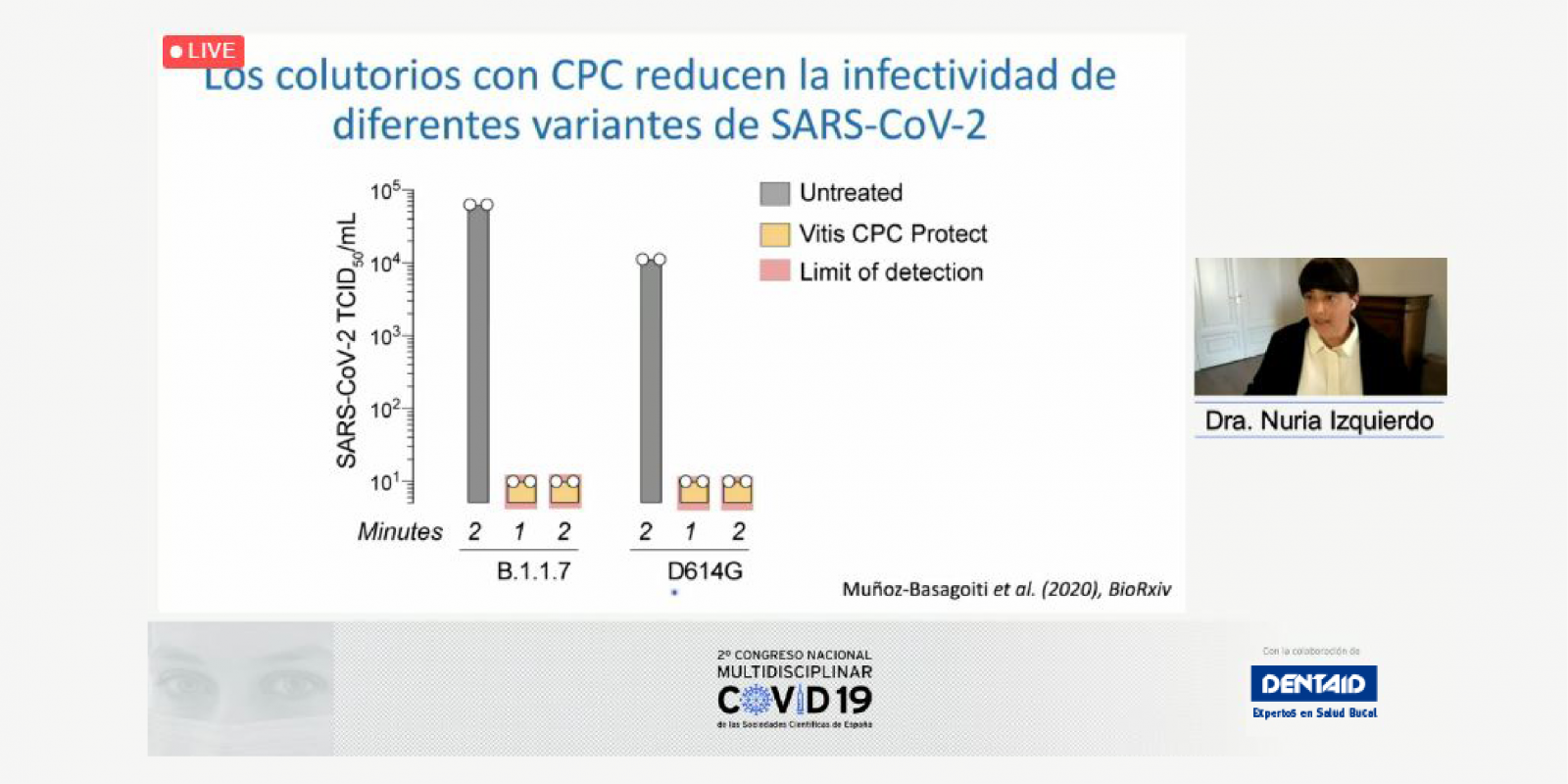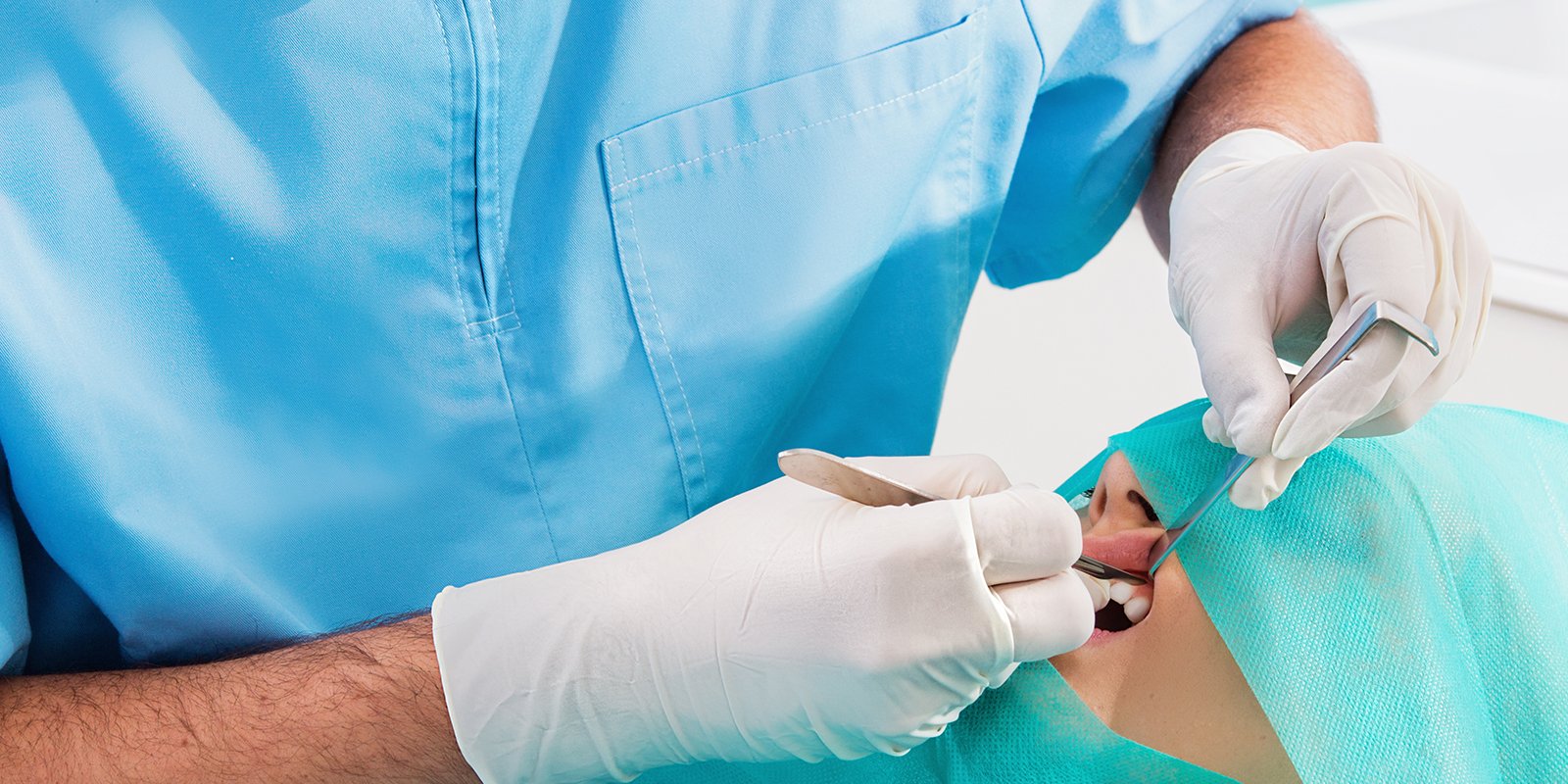DENTAID Oral Health
News for pharmacy professionals
Warding off the smoke from the dental clinic
07 Oct 2021

Kicking the smoking habit is the best thing a smoker can do for their present and future health, gaining in quantity and quality of life. The task is not easy, but there are healthcare professionals who, from different areas (such as the pharmacy or the dental office), can work closely with patients to achieve this goal.
This is the viewpoint of Leyre Gaztelurrutia, coordinator of the Smoking Department of the Respiratory and Smoking Group of the Spanish Society of Clinical, Family and Community Pharmacy (SEFAC), and secretary of the Board of Directors of the National Committee for Smoking Prevention (CNPT), who underscores the close link between tobacco and oral health.
“In the fight against smoking, the involvement of all healthcare professionals (including the dental team) is necessary, in a coordinated manner and transmitting the same message. We should all give at least one brief piece of advice every time we have a smoker in front of us, since in just 5-10 minutes we can get the patient to consider the possibility of trying to quit smoking. If we add to this objective the efforts of all healthcare workers, the impacts that patients receive multiply, and in turn, so do their attempts to drop their habit”.
In this sense, as indicated by this professional who is part of the joint Working Group of the Spanish Society of Periodontology (SEPA) and the CNPT, “it is important to always transmit positive and personalised messages, like: quitting smoking is the best thing you can do for your current and future health. If, in addition, the professional has sufficient training, he or she will be able to monitor patients who attempt to quit, either by scheduling visits or by following up each time they come to the clinic, which will increase their chances of success after one year”.
Tobacco, oral health and the dental office
Tobacco has a broad and very negative impact on oral health, involving anything from aesthetic deterioration due to discolouration and the appearance of spots, halitosis, increased incidence of caries, developing periodontitis or the risk of losing dental implants, to an increased risk of oral cancer.
Inversely, poor oral or periodontal health also has a particularly negative influence or impact on the smoker. But, as Leyre Gaztelurrutia advises, it is better to speak positively: “A person with any pathology, not only at the oral level, but practically any pathology we think of, will improve when we quit smoking. By quitting smoking, your risk for oral cancer will decrease, and your taste perception will improve, while halitosis will diminish; and not only that, but blood circulation will also increase significantly, since nicotine is a vasoconstrictor, thereby improving oral and periodontal health and healing and reducing the risk of implant failure”.
A dental team is made up of oral healthcare professionals, experts in advising patients on chronic processes (such as periodontitis) and in helping to modify other behaviours (such as oral hygiene habits, diet, ...), and therefore, incorporating protocols to help patients quit smoking does not involve much added effort.
As Leyre Gaztelurrutia emphasises, “the dentist and his or her team know how to recognise the harmful effects of tobacco in the oral cavity and are aware of the real benefits that are achieved by quitting tobacco use, so they can motivate, advise and deal with their patients who smoke to get them to quit”. Furthermore, “establishing a follow-up is easy because patients, especially those with periodontal problems, periodically visit the dental clinic to get maintenance check-ups."
Furthermore, as the expert from the CNPT-SEPA group states, “the interventions are not complicated, nor do they require a lot of time, and significant increases in long-term cessation rates are achieved.” Furthermore, it is known that interventions on smoking cessation during oral care are as effective as in any other setting and that intervening in smoking cessation enhances professionals’ prestige and patient loyalty.
Quitting smoking, the ‘solution’
Tobacco is a risk factor for many diseases and, furthermore, removing it from the equation causes an improvement in patients’ general health. That is why quitting smoking is the true solution to many health problems, including oral ones. For this reason, as Leyre Gaztelurrutia indicates, “we must focus our efforts on getting patients to quit smoking completely, by emphasising the positive message, motivating, personalising the advantages of quitting and offering help and support throughout the process”.
The benefits of smoking cessation for general health are immediate; the following, among others, are known:
- Decreased risk of myocardial infarction within a few days after kicking the smoking habit.
- Blood pressure and cholesterol, which also contribute to cardiovascular disease, will drop in a short amount time
- Increased ability to exercise and carry out all sorts of activities
- Increased lung function in a few days
- Respiratory infections will have a smaller effect and coughing will be reduced
- Rapid decrease in the risk of lung, mouth, larynx, bladder, stomach,oesophagusand kidney cancer
- Better looking skin
And there are also multiple benefits for oral health:
- By quitting smoking, the risk of oral cancer clearly drops
- The incidence of oralleukoplakiasubstantially decreases and a significant number of these lesions will even disappear after smoking cessation
- Sense of taste and smell improves,and halitosis diminishes
* 4 to 6 weeks after dropping the smoking habit, gingival vascularisation begins to recover.
* After one year of quitting smoking, the gingiva returns to its normal appearance and anatomy. This means: a greater inflammatory response of the gingiva, which would facilitate, among other things, an earlier diagnosis of periodontal diseases; improves the response to the different periodontal treatments, with differences between smokers and non-smokers disappearing almost immediately; all the periodontal risks associated with tobacco are progressively reduced by improving the immune response; improved prognosis, and therefore, fewer teeth will be lost; reduces the risk of implant treatment failure, as well as the onset of peri-implant disease to the same level as non-smokers.
Impact of the coronavirus pandemic
In January 2020, when funding began for some of the drugs recommended by the National Health System for smoking cessation (subject to certain requirements), an increase in the number of smokers who wanted to make a serious attempt to give up smoking was registered in Spain.
Given the state of alert declared and the overcrowding of healthcare facilities, many patients who had started the process could not be treated as would have been desired at their healthcare centre. The support of other healthcare professionals, such as community pharmacists, dentists, periodontists ..., was key not only in maintaining the pharmacological and cognitive-behavioural treatment, but also in motivating patients to continue with the effort [to quit].
Due to the current situation, the overbooking of many professionals and the risk smokers have for COVID-19 disease progression, as well as the risk of transmission through second-hand smoke, it is even more important to involve all healthcare professionals in the fight against smoking, give brief advice, unify our messages, and work in a coordinated and protocolised manner, always seeking the benefit of the patient and getting them to stop smoking.
In October 2020, the results of the survey “Tobacco, other forms of consumption and confinement”, coordinated by the Ministry of Health and with the advice of the CNPT and the autonomous communities of La Rioja and Murcia, were published. It was carried out from May 4-22, 2020, through an on-line questionnaire and 24,386 people from all over Spain participated. The results showed that 73.5% of smokers had maintained the same frequency of consumption during confinement, while 15.7% had decreased their frequency and 10.8% had increased. In general, an increase in the amount consumed was detected (20% consumed the same and 30% claimed to have reduced consumption) and 7.8% started consuming or went back to smoking during confinement, while 7,2% quit smoking.
A public health problem
Smoking is a major public health problem requiring measures by the authorities to comply with each of the points of the Framework Agreement and the “2018 Declaration of Madrid: for health and the advancement of tobacco regulation in Spain”, signed by more than 60 institutions, including citizen associations, scientific societies and professional councils.
Likewise, as requested by Leyre Gaztelurrutia, “measures must be taken, such as increasing the number of drugs funded for smoking cessation, getting rid of limitations on the funding of treatment to those patients with a result in the Fagerström test greater than or equal to 7, providing more smoke-free spaces (terraces, cars ...), increasing pack price (one of the most effective measures)...”. As this expert points out, “we must bear in mind that we cannot only talk about cigarettes and traditional forms of consumption, since electronic cigarettes and other products capable of releasing nicotine have appeared on the scene”; in addition, “we must assume that no tobacco consumption can be considered safe, meaning, even a single cigarette is harmful to health“.
The SEPA-CNPT working group has prepared a report on “Smoking cessation and oral health”; they have also made a protocol available to Spanish dental clinics to help people quit smoking from the dental office. Through www.sepa.es it will be possible in the coming months to access a specific microsite developed by SEPA and its Foundation on this initiative. Throughout this web portal, dental clinics will be able to consult the protocol, download different management and informative tools, as well as register for training talks on how to implement the protocol at their workplace.
RELATED ARTICLES

21 May 2021
Deciphering the role of oral health and hygiene during COVID-19
The mouth is one of the main paths of entry into the body for many microorganisms that can multiply and cause infections in both the mouth itself and…

12 Apr 2021
10 things you need to know about diabetes and periodontitis
It has been found in recent years that the link between periodontitis and diabetes is bidirectional. While diabetes increases the risk of periodontal…

03 Oct 2019
CONSENSUS AND MULTIDISCIPLINARY VIEW OF THE MANAGEMENT OF ANTI-THROMBOTIC TREATMENT
The Spanish Society of Periodontology (SEPA) is one of the scientific societies that has participated in the elaboration of a consensus document of…
Sign up for the DENTAID Oral Health newsletter
Sign up for the newsletter